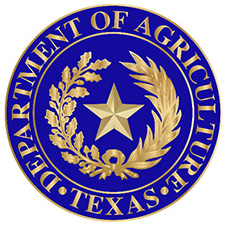(AG Insider) More than two-thirds of U.S. ethanol plants are idle or running at reduced volumes in the greatest crisis the industry has ever seen, said a trade group leader on Monday.
As a result of the coronavirus and reduced demand, The Renewable Fuels Association said in a report that ethanol sales could drop by $10 billion from the $23 billion expected this year.
“I don’t think we’ve hit the bottom yet of capacity coming off line,” said Geoff Cooper, RFA chief executive during a teleconference. “Maybe we’ve hit bottom in terms of gasoline consumption.” Ethanol production set record lows for two weeks in a row this month.
Of the more than 200 ethanol plants, Cooper said 73 plants are idle and 71 have significantly reduced production. “Roughly half of the industry’s production capacity is offline today.”
Three ethanol executives joined Cooper to discuss the dismal state of ethanol, made mostly from corn, on the same day that oil futures “fell off a cliff,” as Barron’s phrased it, into negative territory for contracts calling for delivery in May, which begins on Friday. “No one right now seems to want to own a barrel of oil at any price,” said Barron’s. “Few people are driving or flying as the world hunkers down to deal with the coronavirus.”
Sharply lower prices and steep cuts in production could lead to a $10 billion loss in ethanol sales this year, said the RFA analysis. Ethanol production could be 3 billion gallons, or 20 percent, smaller than was expected at the start of the year, of around 16 billion gallons.
“Covid-19 impact is unprecedented,” said Neil Koehler, cofounder of Pacific Ethanol, which owns seven plants. “It’s had a devastating impact on our industry.” Pacific Ethanol has idled half of its production, he said.
“Today is certainly anything but normal,” said Mike Jerke, chief executive of Southwestern Iowa Renewable Energy. Located in Council Bluffs, across the Missouri River from Omaha, Nebraska, SIRE is running at less than half capacity and buying less corn from area farmers. Mick Henderson, general manager of Commonwealth Agri-Energy, near Nashville, Tennessee, said that as nearby markets faltered, he looked farther and farther away for customers. “Now, we’re treading water even more.” Commonwealth is making some alcohol for hand sanitizers but that is a tiny market.
Cooper said ethanol makers hope the next coronavirus bill in Congress will include aid for their industry. The EPA should accept an appellate court ruling that limits the agency’s power to exempt small refineries from the RFS and remove barriers to higher blends of ethanol into gasoline than the traditional 10 percent, he said.
Cooper also cited an industry proposal that USDA offset partially the cost to ethanol makers of corn that they purchased earlier this year. That would inject cash into the industry and put companies in a better position to restart full-scale production, he said.
Agriculture Secretary Sonny Perdue said on Friday that aid to ethanol was “more than we can do at this time.” The Trump administration unveiled a $19 billion aid package for agriculture that includes $16 billion in cash to producers.
The RFA study is available here.











